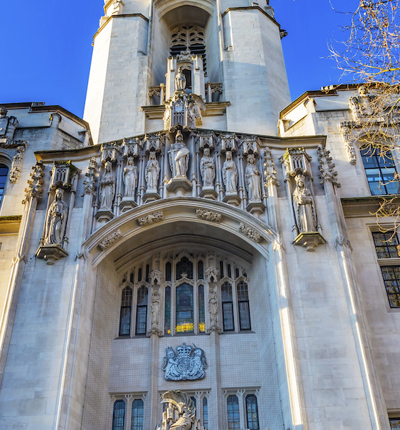
Supreme Court refuses permission for Government to appeal on judges' pensions
The Supreme Court has refused the government's application for permission to appeal in the case of judges' pensions.
Posted on 27 June 2019
The Court of Appeal ruled in December 2018 that the Ministry of Justice discriminated against judges on the grounds of age, race and equal pay in relation to changes to their pension.
The government asked for permission to appeal the ruling but permission has been refused by the Supreme Court because the government failed to “raise an arguable point of law”. The decision today covers the cases for judges’ pensions and the firefighters’ pension claims.
Law firm Leigh Day acts for approximately 250 judges who challenged the Government’s decision forcing younger judges to leave the Judicial Pension Scheme.
In January 2017 the Employment Tribunal found that the Ministry of Justice and the Lord Chancellor had discriminated against younger judges and that this discrimination could not be justified. The Government appealed the ruling, but that appeal was dismissed by the Employment Appeal Tribunal in January 2018.
The courts have ruled repeatedly that the decision to force younger judges to leave the Judicial Pension Scheme was discriminatory on the ground of age. Because of recent drives to increase diversity in the judiciary, many more of those in the younger group of judges are female and/or from a BAME background, and so claims were also successfully pursued for indirect race discrimination and a breach of the principle of equal pay.
The judgment is expected to have an impact on other public sector groups also being represented by Leigh Day who have seen similar changes to their pension schemes such as the 13,000 police officers they represent. It is also expected to apply to other public sector workers who have contacted Leigh Day such as those employed by the NHS, teachers and prison officers.
Shubha Banerjee of Leigh Day solicitors, who is acting on behalf of the judges, said:
“We are extremely pleased that the Supreme Court has refused the government’s application for permission to appeal, thereby determining once and for all that the three previous rulings in favour of our clients by the Employment Tribunal, Employment Appeal Tribunal and Court of Appeal will stand.
“The government’s decision to force younger judges to leave the Judicial Pensions Scheme has been ruled to be unlawfully discriminatory and the government has no further avenues for appeal. We look forward to these wrongs now being corrected.
"Judges and other public sector workers provide invaluable public services to this country and the government should make sure they are compensated fairly and lawfully for this service, including through their hard-earned pensions.”

